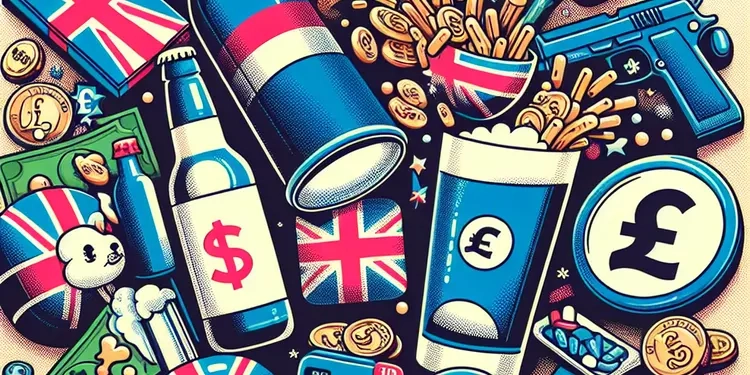
Find Help
More Items From Ergsy search
-
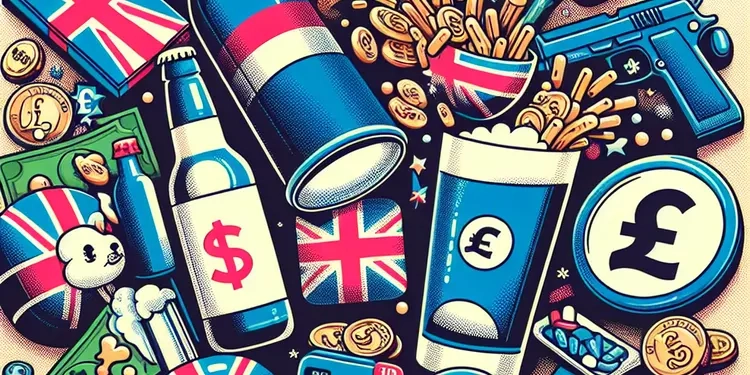
What is binge drinking?
Relevance: 100%
-
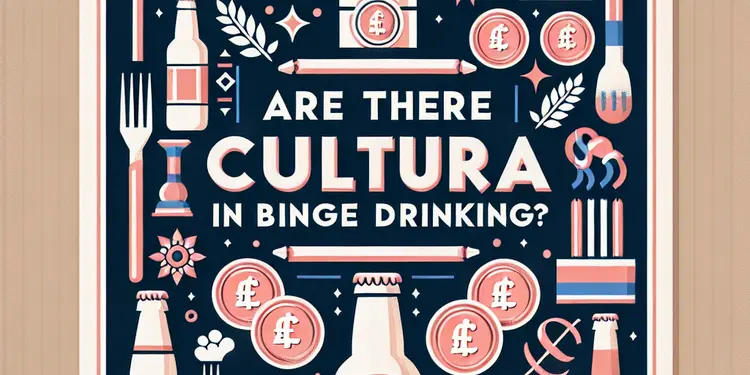
Are there cultural factors in binge drinking?
Relevance: 96%
-
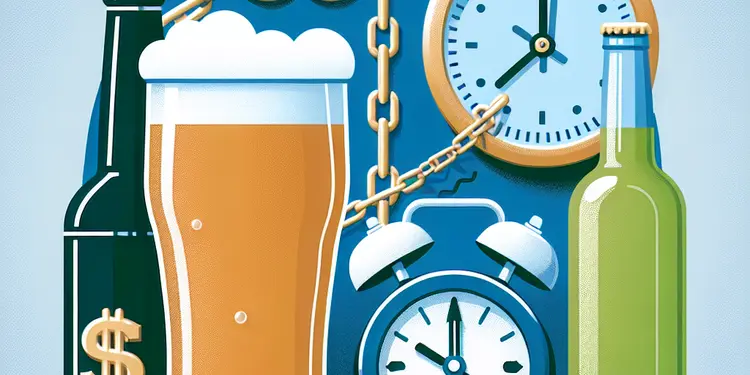
Can binge drinking lead to addiction?
Relevance: 93%
-

How is binge drinking typically defined?
Relevance: 92%
-
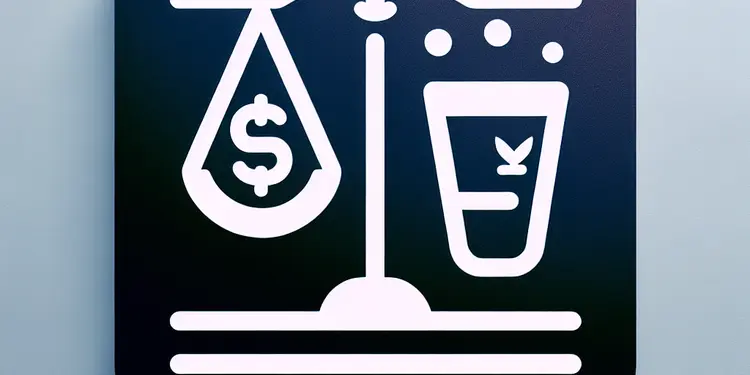
Are there any laws against binge drinking?
Relevance: 92%
-
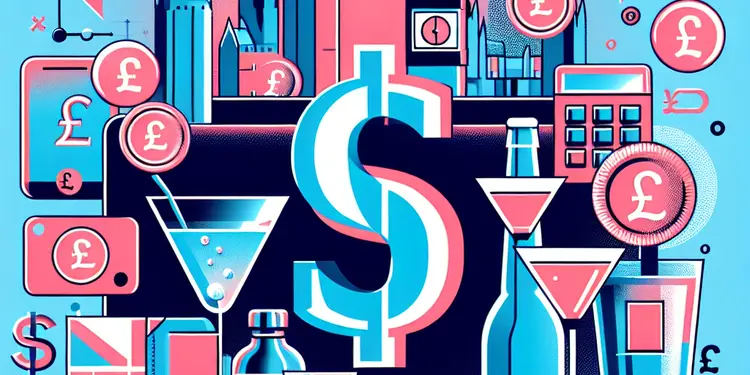
What are the social consequences of binge drinking?
Relevance: 92%
-
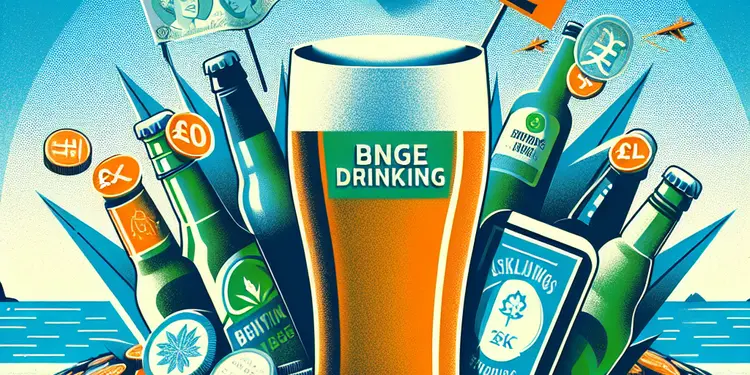
What are the risks associated with binge drinking?
Relevance: 92%
-
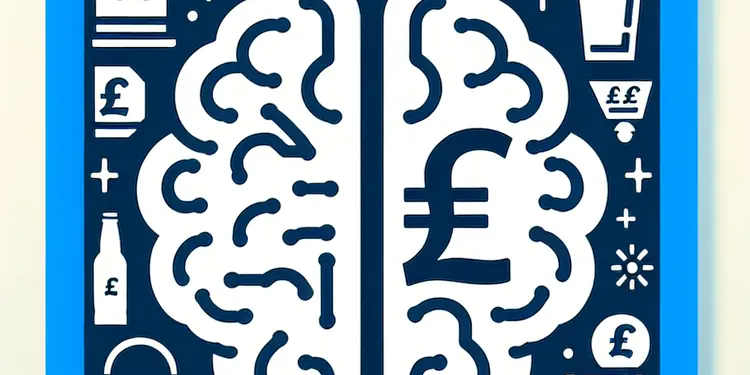
How does binge drinking affect the brain?
Relevance: 89%
-
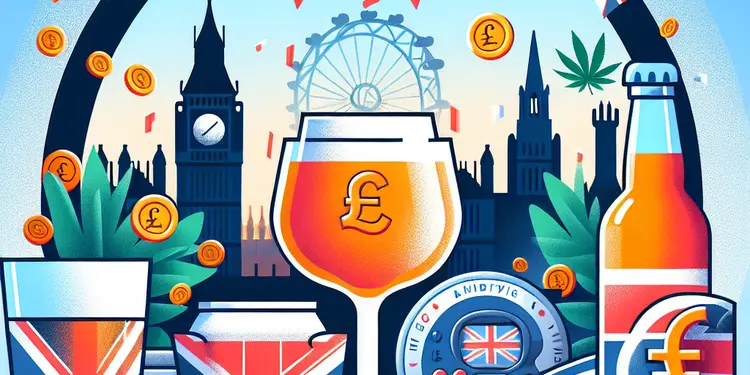
Can binge drinking affect physical health?
Relevance: 89%
-
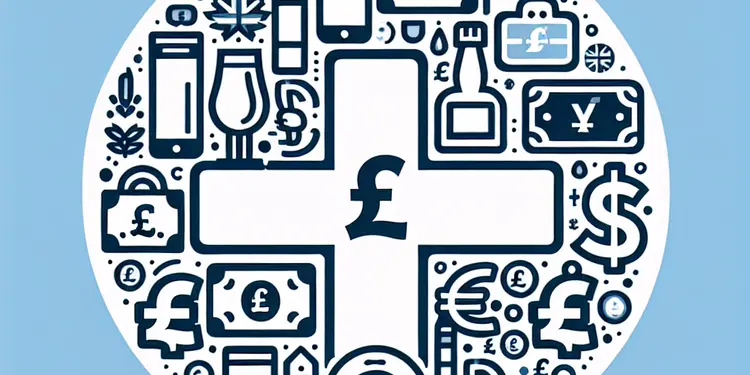
What can be done to prevent binge drinking?
Relevance: 89%
-
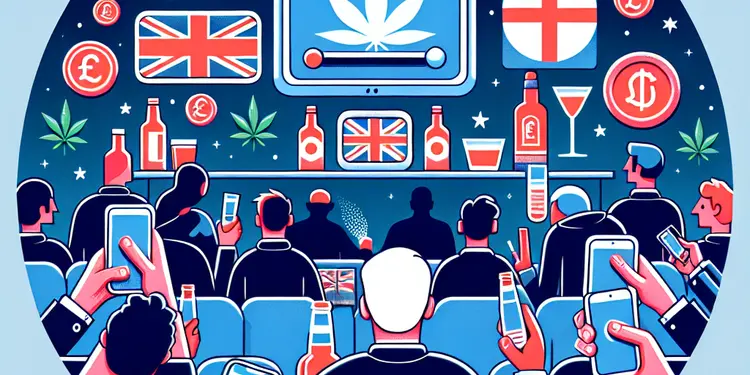
What is the role of peer pressure in binge drinking?
Relevance: 88%
-

Is binge drinking more common in any specific demographic?
Relevance: 87%
-
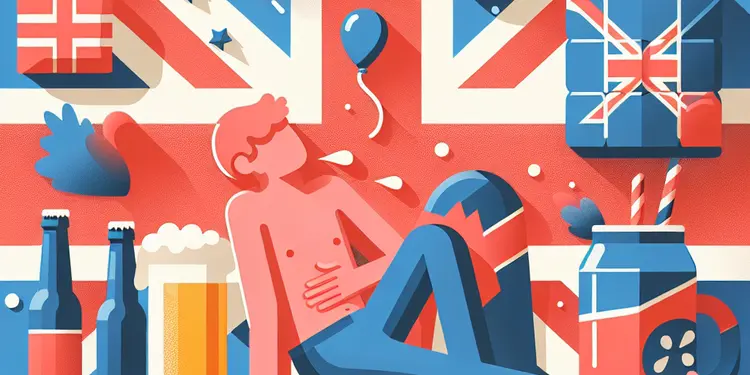
How does binge drinking affect mental health?
Relevance: 86%
-
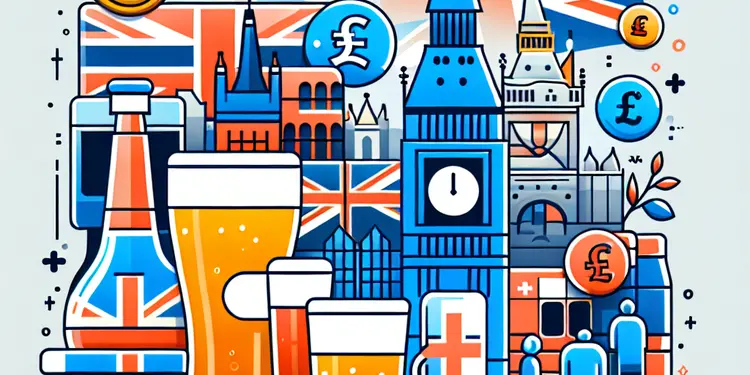
Why is binge drinking common among young adults?
Relevance: 86%
-
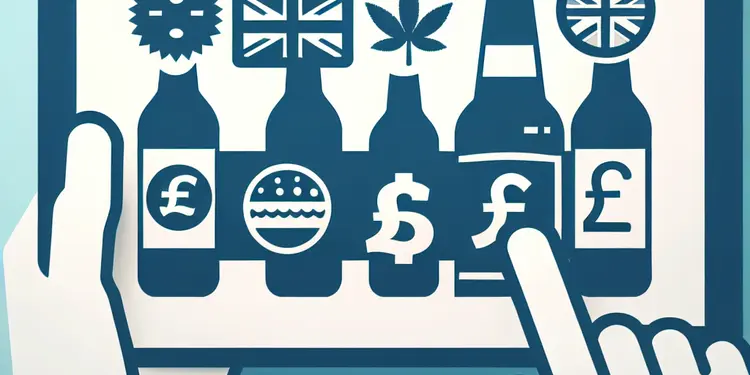
How can one reduce the risk of binge drinking?
Relevance: 85%
-
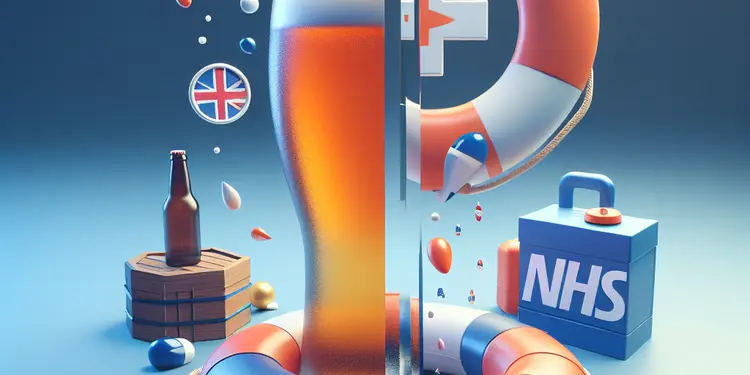
What resources are available for someone struggling with binge drinking?
Relevance: 84%
-
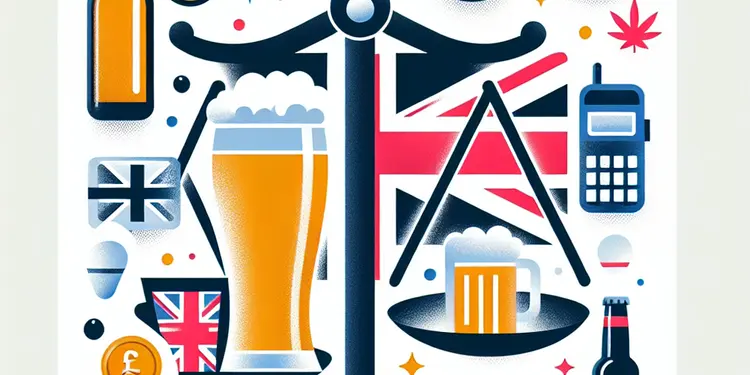
How does alcohol tolerance relate to binge drinking?
Relevance: 84%
-
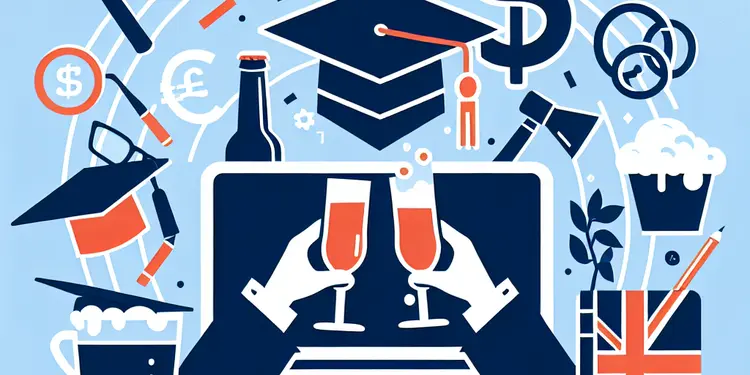
How does binge drinking impact academic or work performance?
Relevance: 83%
-
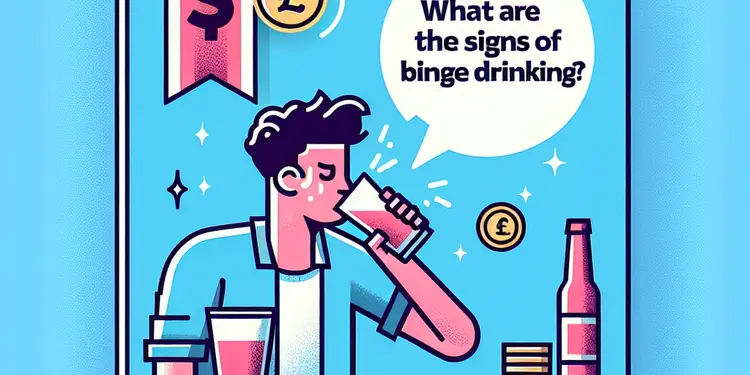
What are the signs of binge drinking?
Relevance: 72%
-
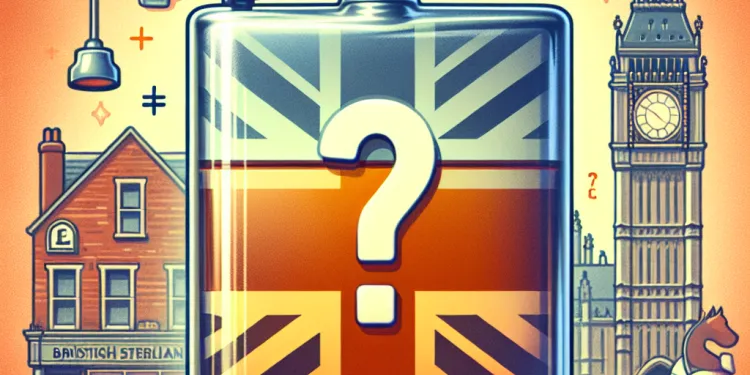
How do I know if my drink was spiked?
Relevance: 39%
-
Are high caffeine drinks safe?
Relevance: 38%
-
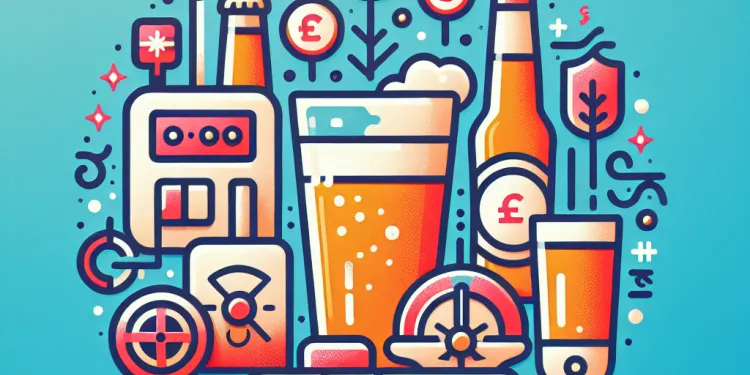
How effective are drink testing kits?
Relevance: 37%
-

Are men at risk of having their drinks spiked?
Relevance: 37%
-

Can drink covers be reused to prevent spiking?
Relevance: 36%
-

How can I reduce the risk of my drink being spiked?
Relevance: 36%
-

What drugs are commonly used to spike drinks?
Relevance: 36%
-

Can drink spiking occur in private settings?
Relevance: 36%
-
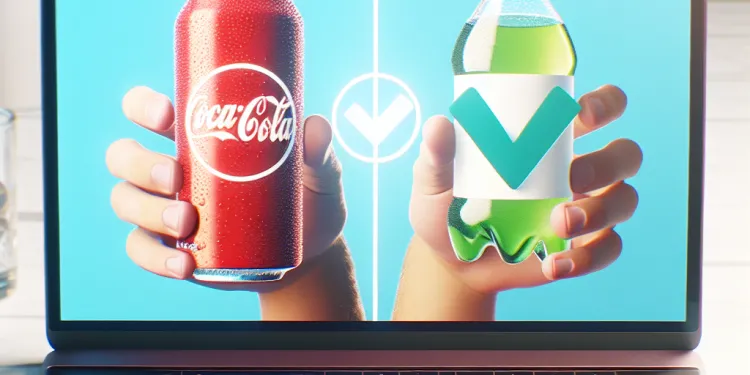
What role do sugary drinks play in obesity?
Relevance: 36%
-
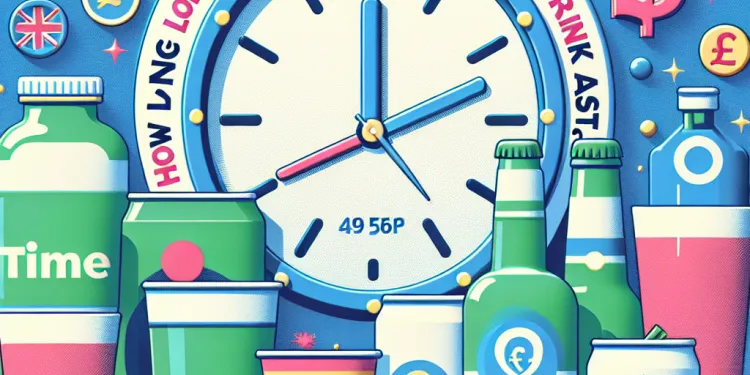
How long do the effects of a spiked drink last?
Relevance: 35%
-

Which drinks are exempt from the sugar tax?
Relevance: 35%
-

Can I taste or smell if my drink has been spiked?
Relevance: 35%
-
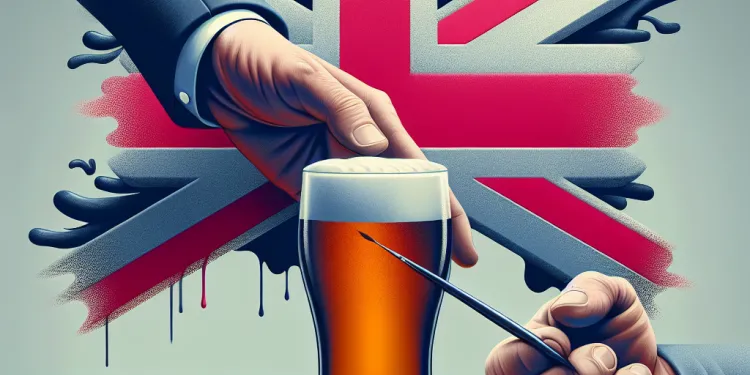
What should I do if I witness someone's drink being spiked?
Relevance: 35%
-
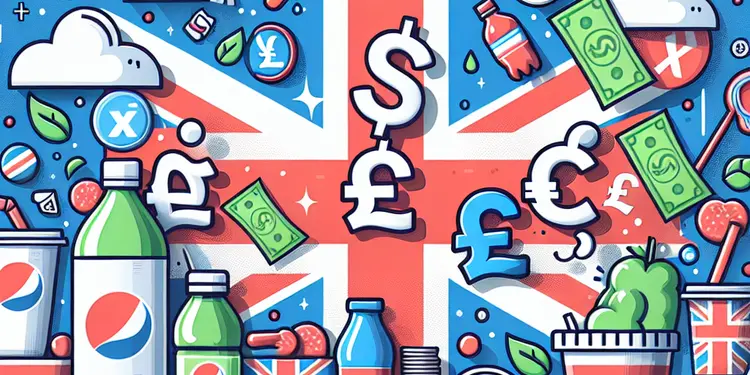
Is the sugar tax applied to diet or zero sugar drinks?
Relevance: 34%
-
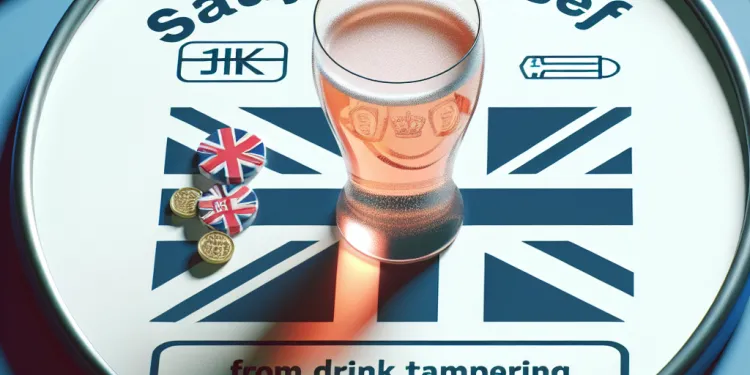
What should I do if I suspect my drink has been spiked?
Relevance: 34%
-
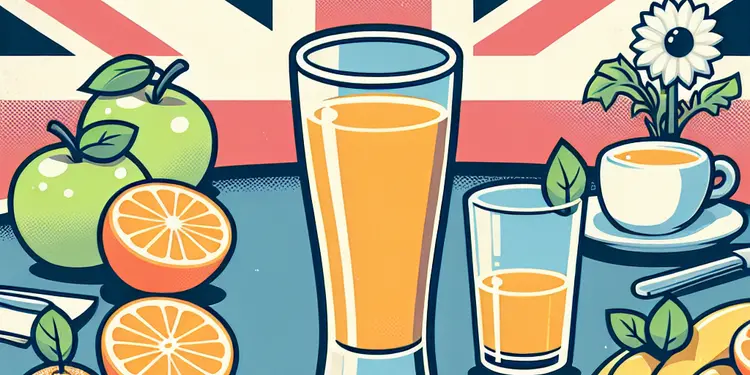
Is it okay to drink orange juice every day?
Relevance: 34%
-
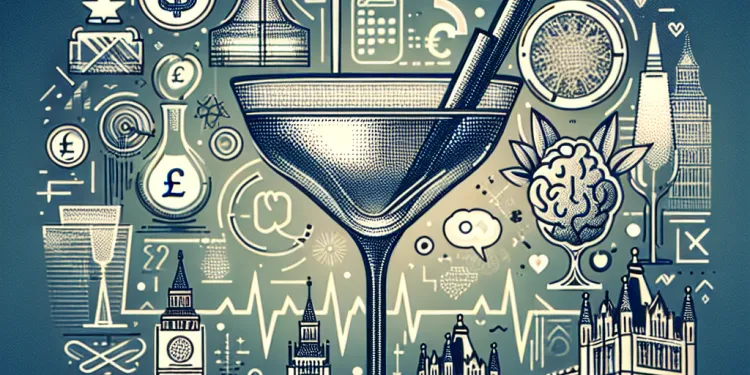
Can drink spiking cause long-term health effects?
Relevance: 34%
-

What are common symptoms if my drink has been spiked?
Relevance: 34%
-
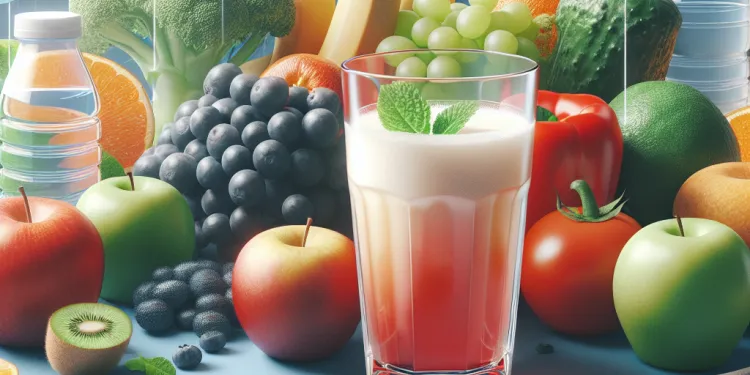
What should I eat or drink if I have norovirus?
Relevance: 34%
-
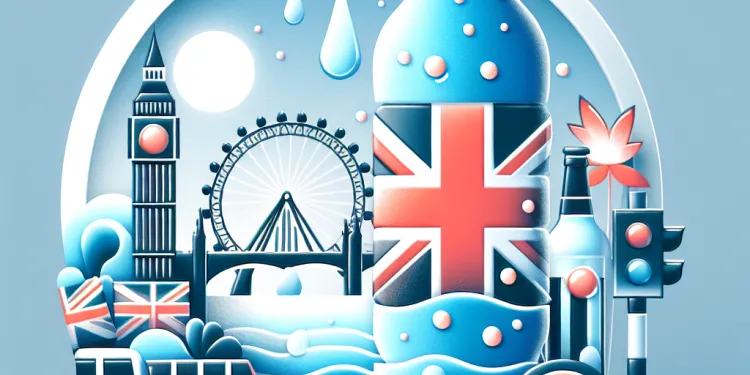
How much water should I drink during a heatwave?
Relevance: 34%
-
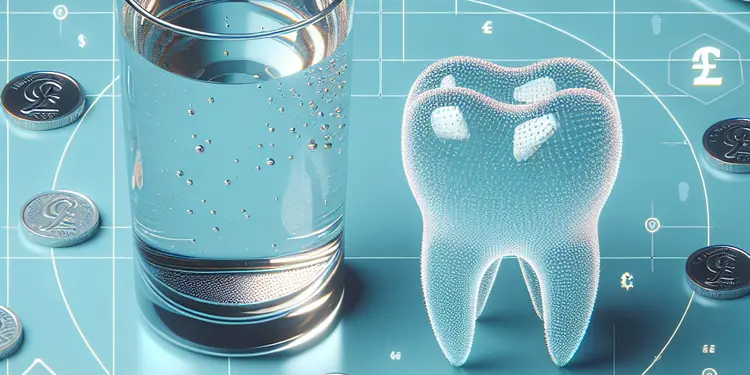
Can drinking water help prevent tooth decay?
Relevance: 34%
What is Binge Drinking?
Binge drinking is defined as consuming a large amount of alcohol in a short period of time, leading to intoxication. In the United Kingdom, it is typically characterised by drinking more than 8 units of alcohol for men and 6 units for women in a single session. This pattern of drinking often leads to a rapid increase in blood alcohol concentration and can have harmful effects on health and well-being.
The Culture of Binge Drinking
Binge drinking is often associated with social events and gatherings. In the UK, it can sometimes be seen as a rite of passage or a normal part of socialising, especially among young adults and university students. It is frequently linked with nightlife, parties, and special occasions, where the focus is on drinking large quantities rather than enjoying moderate amounts. The culture surrounding binge drinking can negatively influence individuals to engage in risky drinking behaviours without considering the potential consequences.
Health Risks of Binge Drinking
Binge drinking poses several health risks. Short-term effects include accidents, injuries, alcohol poisoning, and aggressive behaviour. In the long term, it can lead to chronic conditions such as liver damage, cardiovascular problems, and addiction. Regular episodes of binge drinking can also impair mental health, contributing to anxiety, depression, and cognitive impairments. The immediate and cumulative effects of binge drinking highlight the importance of understanding and addressing this behaviour in society.
Societal and Economic Impact
Beyond individual health issues, binge drinking can have significant societal and economic impacts. It increases the burden on healthcare systems due to alcohol-related injuries and illnesses. Additionally, it contributes to lost productivity, workplace absenteeism, and can strain public services such as police and ambulance services. The cultural acceptance and prevalence of binge drinking in the UK necessitate public health interventions and policies aimed at reducing its occurrence and mitigating its impacts.
Strategies for Prevention and Reduction
Addressing binge drinking involves both individual responsibility and broader societal efforts. Education and awareness campaigns can inform people of the risks and encourage moderation. Policies such as minimum unit pricing and restrictions on alcohol advertising aim to reduce excessive drinking. Community-based initiatives also play a role in changing perceptions and behaviours around alcohol consumption. By promoting a culture of responsible drinking and providing support for those seeking help, the harmful effects of binge drinking can be diminished.
What is Binge Drinking?
Binge drinking means drinking a lot of alcohol quickly. This can make you drunk. In the UK, men drinking more than 8 drinks and women drinking more than 6 drinks in one go is called binge drinking. Drinking like this can be bad for your health.
The Culture of Binge Drinking
Binge drinking often happens at parties or with friends. In the UK, some people think it's normal, especially young people and students. People may drink a lot at parties or special events without thinking about the bad things that can happen.
Health Risks of Binge Drinking
Binge drinking can be harmful. It can cause accidents, injuries, and make people behave badly. Over time, it can hurt your liver, heart, and brain. It can also make you feel anxious or sad. Knowing about these risks can help people make better choices.
Societal and Economic Impact
Binge drinking affects more than just the person drinking. It can make healthcare more expensive. It also means people might miss work or use emergency services more, like police and ambulances. This is why it is important to work on stopping binge drinking.
Strategies for Prevention and Reduction
We can stop binge drinking with education and support. Telling people about the risks is important. Setting rules on how alcohol is sold can help too. Communities can also help change how people think about drinking. Encouraging responsible drinking and helping those who need it is key.
Frequently Asked Questions
What is binge drinking?
Binge drinking is the consumption of an excessive amount of alcohol in a short period of time, typically to the point of intoxication.
How is binge drinking typically defined?
For men, it is defined as consuming five or more drinks in a row, and for women, it is four or more drinks in a row.
What are the risks associated with binge drinking?
Risks include alcohol poisoning, accidents, injuries, impaired judgment, and long-term health issues like liver disease.
Why is binge drinking common among young adults?
It is often associated with social activities, peer pressure, and the desire to achieve immediate intoxication.
Can binge drinking lead to addiction?
Yes, frequent binge drinking can increase the risk of developing alcohol use disorder.
How does binge drinking affect mental health?
It can increase the risk of mental health issues like depression and anxiety.
What are the signs of binge drinking?
Signs include drinking rapidly, loss of control over drinking, and experiencing blackouts or memory loss.
How does binge drinking impact academic or work performance?
It can lead to poor concentration, missed classes or workdays, and decreased performance.
What are the social consequences of binge drinking?
It can lead to strained relationships, social isolation, and risky behaviors.
How does binge drinking affect the brain?
It can impair brain development in young people and cause long-term damage to brain structures.
Is binge drinking more common in any specific demographic?
It is more common among young adults aged 18-34, but it can occur in any demographic.
What can be done to prevent binge drinking?
Efforts include education, promoting responsible drinking habits, and supportive measures for those at risk.
Are there any laws against binge drinking?
While binge drinking itself is not illegal, many related behaviors, like underage drinking and public intoxication, are.
How does alcohol tolerance relate to binge drinking?
Higher tolerance can lead individuals to drink more to achieve intoxication, increasing the risk of binge drinking.
What is the role of peer pressure in binge drinking?
Peer pressure can lead individuals to consume more alcohol to fit in with the group.
Can binge drinking affect physical health?
Yes, it can result in short-term effects like hangovers and long-term issues such as liver damage and cardiovascular problems.
Are there cultural factors in binge drinking?
Cultural norms and acceptance of heavy drinking can influence the prevalence of binge drinking.
What is alcohol poisoning?
Alcohol poisoning is a serious consequence of drinking large amounts of alcohol in a short time, leading to dangerous or fatal outcomes.
How can one reduce the risk of binge drinking?
Strategies include setting drinking limits, drinking slowly, and alternating alcoholic drinks with water.
What resources are available for someone struggling with binge drinking?
Resources include counseling, support groups, and treatment centers specializing in alcohol use disorders.
What is binge drinking?
Binge drinking means drinking a lot of alcohol in a short time. It can make you feel very drunk and is not safe for your health.
Here are some tips to help:
- Try to drink slowly.
- Have a glass of water between drinks.
- Talk to a grown-up or a friend if you're worried about drinking.
Binge drinking means drinking a lot of alcohol very quickly. This usually makes someone drunk.
What is binge drinking?
Binge drinking means drinking a lot of alcohol in a short time. It can make you feel very drunk.
If you need help reading:
- Ask someone to read with you.
- Use a ruler or finger to follow the words.
- Take breaks if you need to.
For men, it means having five or more drinks one after the other. For women, it means having four or more drinks one after the other.
If you find reading hard, you can:
- Ask someone to read it with you.
- Use a text-to-speech app to listen to it.
- Break down the sentences into smaller parts.
What can happen if you drink too much alcohol at once?
Drinking too much alcohol can be dangerous. It can make you very sick. This is called alcohol poisoning.
You might also have accidents and get hurt. Drinking can make it hard to think clearly and make good choices.
Over time, drinking a lot might hurt your body, like your liver. Your liver is important to keep you healthy.
To help understand and remember this, you can use pictures, flashcards, or ask someone to explain it to you in a different way.
Why do many young people drink a lot of alcohol at once?
This happens a lot when people are having fun together. Friends might push you to join in. Sometimes, people just want to feel a buzz really fast.
Can drinking a lot of alcohol make you addicted?
Drinking too much alcohol at once is called binge drinking. It can be harmful and lead to addiction. Addiction means you feel like you can't stop drinking alcohol even if it's bad for you.
If you're worried about drinking, talk to someone you trust. You can also use tools like picture stories or apps that help you understand and manage drinking. Remember, it's okay to ask for help!
Yes, drinking a lot of alcohol very often can make it more likely for someone to have a problem with alcohol.
What happens to your mind when you drink a lot of alcohol?
It can make you feel sad or worried and might hurt your mental health.
How can you tell if someone is binge drinking?
Some signs are drinking too much, not being able to stop drinking, and forgetting things after drinking.
How does drinking a lot of alcohol affect school or work?
Drinking too much alcohol often can make it hard to do well at school or work. Here is how it can affect you: - **Hard to Concentrate:** Drinking a lot makes it hard to focus. - **Low Energy:** You might feel tired and have less energy. - **Forget Things:** It can make it hard to remember what you learned. - **Missed Days:** You might miss school or work because you don't feel well. If you or someone you know struggles with drinking, talk to a trusted adult or use help lines to get support.It can make it hard to focus, cause you to miss school or work, and make it harder to do a good job.
What happens when people drink too much alcohol?
Drinking a lot of alcohol at once is called "binge drinking." This can cause problems.
- You might fight with friends or family.
- You could make unsafe choices and get hurt.
- You might miss school or work because you feel sick.
- It can make people feel sad or angry.
To help with understanding, you can:
- Talk to someone you trust about how you feel.
- Use pictures or videos to learn more.
- Ask for help if you need it.
It can make it hard to get along with others. You might feel alone. You might also do things that are not safe.
What happens to the brain when you drink too much alcohol?
It can hurt the growing brains of young people and cause lasting harm to brain parts.
Who drinks too much alcohol the most?
This happens a lot to young people aged 18-34. But it can happen to anyone.
How can we stop drinking too much alcohol?
We are working to help people. We teach them about alcohol and how to drink safely. We also give support to people who might have problems with drinking.
Are there rules about drinking too much alcohol?
When people drink a lot of alcohol in a short time, it is called 'binge drinking'.
Some places have rules to help stop binge drinking. These rules keep people safe.
There are ways to learn more about this:
- Talk to a teacher or an adult you trust.
- Look online for easy-read guides.
- Ask a parent to explain the rules to you.
Remember, staying safe is important!
Binge drinking is not against the law. But some things people do when they drink too much are. For example, drinking alcohol if you are too young or being drunk in public places is not allowed.
How is alcohol tolerance linked to binge drinking?
Alcohol Tolerance: This means needing more alcohol to feel its effects.
Binge Drinking: This means drinking a lot of alcohol in a short time.
Understanding the Link:
- If someone drinks a lot often, their body might get used to alcohol. They need to drink more to feel the same effects. This is called alcohol tolerance.
- People with high alcohol tolerance might drink large amounts quickly. This can lead to binge drinking.
Helpful Tools:
- Ask a trusted adult if you have questions.
- Use pictures or charts to understand better.
- Take breaks when reading if you need to.
If a person can drink a lot without feeling it, they might drink even more to feel drunk. This can make them drink too much, too fast.
How does being around friends affect heavy drinking?
When you are with friends, you might feel like you have to drink a lot to fit in. This is called peer pressure. It means doing something because others are doing it, even if you don't want to.
Peer pressure can make it hard to say no to drinking too much. Your friends might say things to convince you that it's okay. It's important to be strong and make your own choices.
Here are some tips to help you:
- Talk to a trusted adult about how you feel.
- Practice saying "no" in a polite way.
- Find friends who respect your choices.
Sometimes friends can make us feel like we have to drink more alcohol to be part of the group.
Can drinking too much alcohol harm your body?
Yes, drinking alcohol can make you feel sick the next day. This is called a hangover. If you keep drinking a lot, it can hurt your liver and heart over time.
Do some cultures cause people to drink a lot at once?
The way people in a culture think about drinking a lot of alcohol can change how common it is for people to drink too much at once.
Here are some tips to help understand this better:
- People might think it's okay to drink a lot because of what others around them do.
- It's important to talk about why drinking too much can be bad.
- Use apps or tools that help track how much you drink.
- Ask friends or family for support if you need help drinking less.
What is alcohol poisoning?
Alcohol poisoning happens when a person drinks too much alcohol in a short time. It is very dangerous. It can make you very sick and can even be life-threatening.
If someone has alcohol poisoning, they may:
- Confuse or not think straight
- Throw up
- Breathe slowly
- Have cold or blue skin
- Pass out and not wake up
If you think someone has alcohol poisoning:
- Call for help immediately (like 999 or your local emergency number)
- Stay with them until help arrives
- Do not give them coffee or a cold shower
To help avoid alcohol poisoning:
- Drink little amounts of alcohol
- Eat food before and while drinking alcohol
- Know your limits and listen to your body
There are tools that can help you. You can use apps or talk to someone you trust about how to drink safely.
Alcohol poisoning happens when someone drinks too much alcohol very quickly. It can make you very sick or even cause death. It is very dangerous.
How can you drink less alcohol?
Here are some tips to help you:
- Drink slowly. Take your time with each drink.
- Drink water or soft drinks between alcoholic drinks.
- Plan how much you want to drink before you go out.
- Eat food before and while you are drinking.
- Be with friends who also want to drink less.
Remember, it's okay to say no if someone offers you a drink.
Here are some ways to drink safely:
- Set a limit on how much you will drink.
- Drink slowly.
- Have a glass of water between alcoholic drinks.
These can help you stay in control.
Where can you find help if you have trouble with drinking too much alcohol?
If you drink a lot of alcohol quickly and often, it can be bad for you. Don't worry, there are places and people who can help you.
Here are some ways to get support:
- Talk to a doctor: A doctor can help you understand why you drink and give you advice on stopping.
- Call a helpline: You can call a special number to talk to someone who understands and can support you.
- Find a support group: You can meet other people who have the same problem. They can share their stories and help you feel better.
- Ask for help from friends or family: Friends and family can be there to listen and help you feel safe.
You are not alone, and there are many people ready to help you.
Here is some help if you have trouble with alcohol:
You can talk to a counselor. They can listen and give advice.
Join a support group. You can meet others who understand.
Go to a treatment center. They know how to help people stop drinking alcohol.
Useful Links
This website offers general information and is not a substitute for professional advice.
Always seek guidance from qualified professionals.
If you have any medical concerns or need urgent help, contact a healthcare professional or emergency services immediately.
Some of this content was generated with AI assistance. We’ve done our best to keep it accurate, helpful, and human-friendly.
- Ergsy carfully checks the information in the videos we provide here.
- Videos shown by Youtube after a video has completed, have NOT been reviewed by ERGSY.
- To view, click the arrow in centre of video.
- Most of the videos you find here will have subtitles and/or closed captions available.
- You may need to turn these on, and choose your preferred language.
- Go to the video you'd like to watch.
- If closed captions (CC) are available, settings will be visible on the bottom right of the video player.
- To turn on Captions, click settings .
- To turn off Captions, click settings again.
More Items From Ergsy search
-

What is binge drinking?
Relevance: 100%
-

Are there cultural factors in binge drinking?
Relevance: 96%
-

Can binge drinking lead to addiction?
Relevance: 93%
-

How is binge drinking typically defined?
Relevance: 92%
-

Are there any laws against binge drinking?
Relevance: 92%
-

What are the social consequences of binge drinking?
Relevance: 92%
-

What are the risks associated with binge drinking?
Relevance: 92%
-

How does binge drinking affect the brain?
Relevance: 89%
-

Can binge drinking affect physical health?
Relevance: 89%
-

What can be done to prevent binge drinking?
Relevance: 89%
-

What is the role of peer pressure in binge drinking?
Relevance: 88%
-

Is binge drinking more common in any specific demographic?
Relevance: 87%
-

How does binge drinking affect mental health?
Relevance: 86%
-

Why is binge drinking common among young adults?
Relevance: 86%
-

How can one reduce the risk of binge drinking?
Relevance: 85%
-

What resources are available for someone struggling with binge drinking?
Relevance: 84%
-

How does alcohol tolerance relate to binge drinking?
Relevance: 84%
-

How does binge drinking impact academic or work performance?
Relevance: 83%
-

What are the signs of binge drinking?
Relevance: 72%
-

How do I know if my drink was spiked?
Relevance: 39%
-
Are high caffeine drinks safe?
Relevance: 38%
-

How effective are drink testing kits?
Relevance: 37%
-

Are men at risk of having their drinks spiked?
Relevance: 37%
-

Can drink covers be reused to prevent spiking?
Relevance: 36%
-

How can I reduce the risk of my drink being spiked?
Relevance: 36%
-

What drugs are commonly used to spike drinks?
Relevance: 36%
-

Can drink spiking occur in private settings?
Relevance: 36%
-

What role do sugary drinks play in obesity?
Relevance: 36%
-

How long do the effects of a spiked drink last?
Relevance: 35%
-

Which drinks are exempt from the sugar tax?
Relevance: 35%
-

Can I taste or smell if my drink has been spiked?
Relevance: 35%
-

What should I do if I witness someone's drink being spiked?
Relevance: 35%
-

Is the sugar tax applied to diet or zero sugar drinks?
Relevance: 34%
-

What should I do if I suspect my drink has been spiked?
Relevance: 34%
-

Is it okay to drink orange juice every day?
Relevance: 34%
-

Can drink spiking cause long-term health effects?
Relevance: 34%
-

What are common symptoms if my drink has been spiked?
Relevance: 34%
-

What should I eat or drink if I have norovirus?
Relevance: 34%
-

How much water should I drink during a heatwave?
Relevance: 34%
-

Can drinking water help prevent tooth decay?
Relevance: 34%


